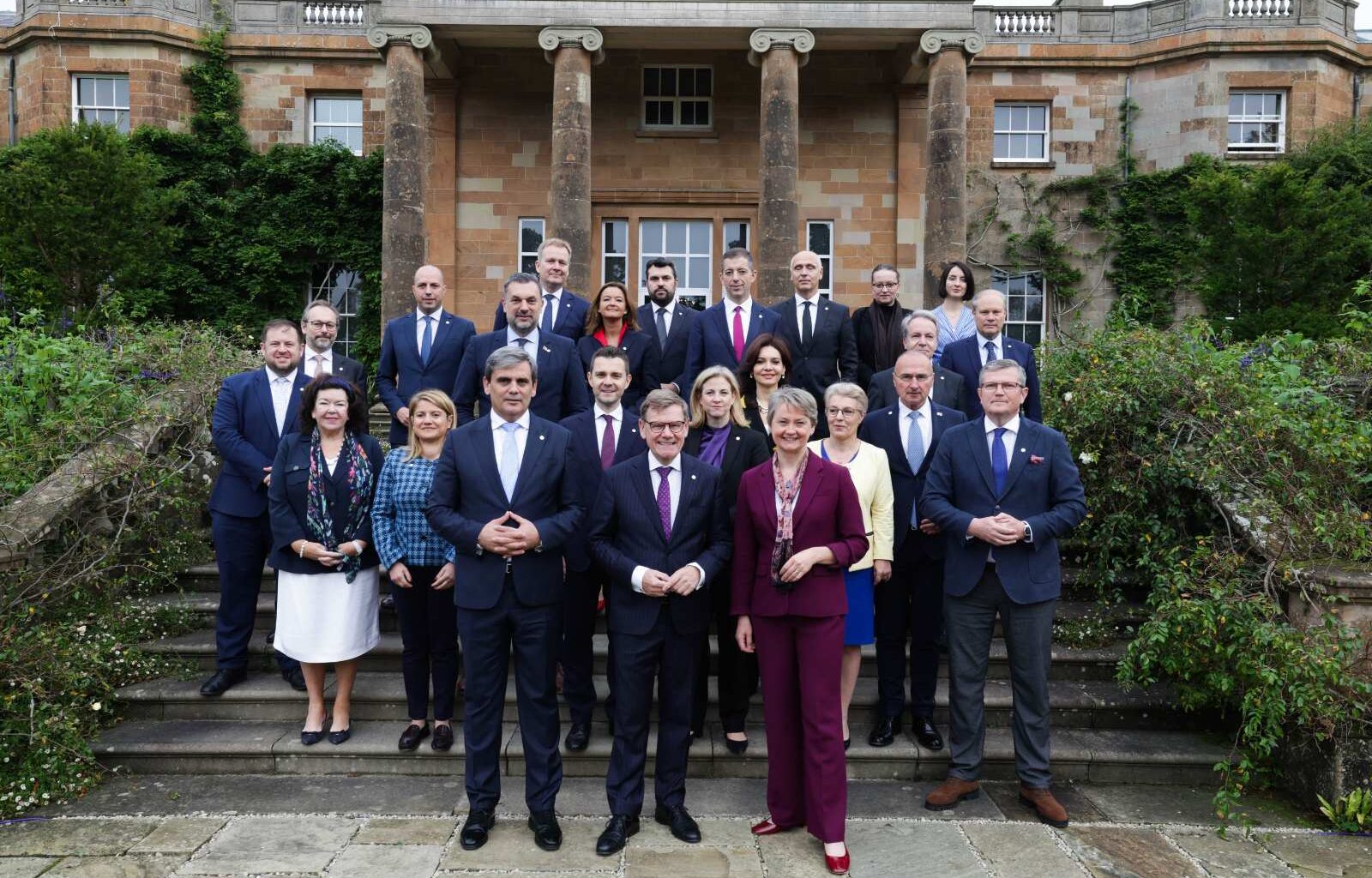BELFAST – On 8 and 9 October, the Foreign Ministers of the Berlin Process met in Belfast to discuss the important topics, such as reconciliation, security, regional economic integration and migration, as well as the EU path of the Western Balkans countries.
Ministers discussed the importance of building resilience in the Western Balkans to combat the constant flood of Russian hybrid threats aimed at destabilising the region, and fanning ethnic tensions.
This meeting will be followed by the summit of heads of state and government in London on 22 October.
Launched in 2014, the Berlin Process aims to promote regional cooperation with the six Western Balkan countries.
In addition to Albania, Bosnia and Herzegovina, Kosovo, Montenegro, North Macedonia and Serbia, the format includes several EU member states, the United Kingdom and EU institutions.
The host of the high-level meeting, British Foreign Secretary Yvette Cooper, affirmed the UK’s commitment to stability in the Western Balkans
Cooper announced £4 million in funding to help combat Russian threats aimed at “destabilising the region” and “fanning ethnic tensions,” the Foreign Office stated.
In addition, she promised £10 million investment for schemes aimed at tackling people-smuggling in the Western Balkans and other key regions.
“It is in all our interests to protect security and stability in the Western Balkans, and we must be alive to the full range of threats that our partners in the region are facing, from Russian efforts to revive ethnic tensions, to vile people-smuggling gangs trading in human lives”, Yvette Cooper stressed.
In a similar vein, German Foreign Minister Johann Wadephul noted that “the Berlin Process is the catalyst in the EU accession process of the Western Balkan countries”.
“This mechanism is more important than ever. After all, people are beginning to lose confidence that they will be part of the EU in the near future. We cannot afford to let that happen because we would then run the risk of a return to the old days of hostility and a bigger role for Russia and China”, Wadephul remarked.

